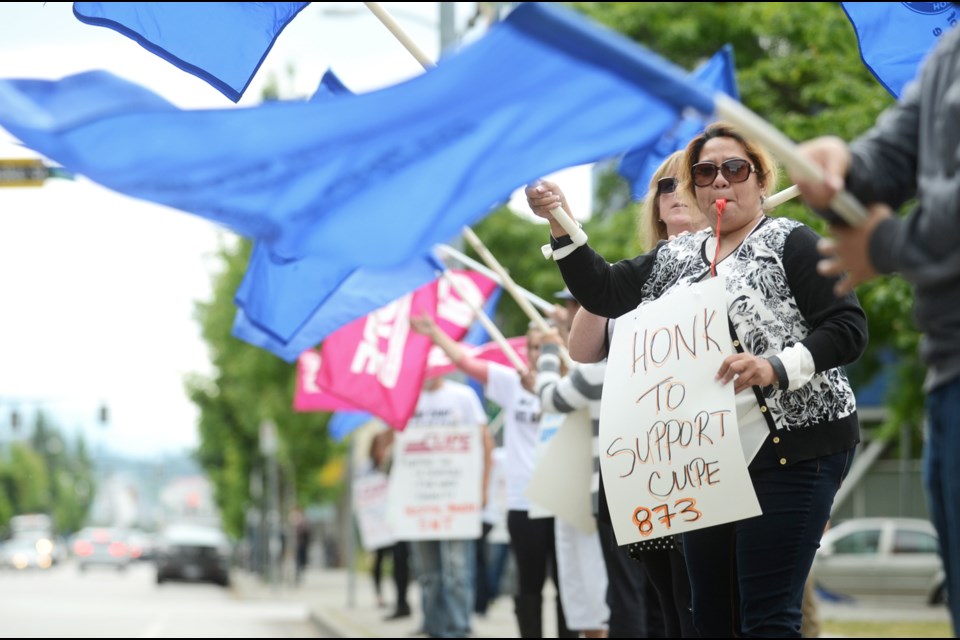Drivers and assistants who transport patients across the Lower Mainland to cancer treatments, kidney dialysis and other medical appointments took to the picket lines at Royal Columbian Hospital this week to demand better wages, schedule guarantees and pay equity between male and female employees.
Employed by Abbotsford-based private contractor SN Transport Ltd., about 105 drivers and assistants, who are negotiating their first collective agreement as a sub-local of CUPE 873 (B.C.’s ambulance paramedics) have been on strike since Monday.
“We’re fighting for fair wages,” said union local chair Garrett Corrigan, an SN Transport driver who was on the picket line. “A lot of our members have not had a general wage increase in over three years. The discrepancy between female and male workers is quite a bit different for the exact same work that they do. We’re also fighting for schedules. On a day-to-day basis, we don’t know when we start and where we finish, which makes it very difficult to plan childcare, family events.”
SN Transport – with its distinctive lime-green vans and mini-buses marked “Hospital Transfers” – is contracted by Fraser Health and other Lower Mainland health authorities to transport medically-stable patients between hospitals, from hospital to home or long-term care and to medical appointments.
The company’s operation stretches from Squamish to Hope.
The Labour Relations Board ruled last week that only renal dialysis and cancer treatment – about 33 per cent of SN Transport’s work, according to CUPE – should be designated essential services, but the union is currently under a 100-per-cent essential-service order while the employer appeals the decision.
Loss of that appeal could have serious consequences for acute care facilities, like Burnaby Hospital, according to SN Transport CEO Malcolm White.
“The term within the health authority is what we call bedlocking,” he told the NOW.
To illustrate, he described the consequence of not efficiently transporting a discharged patient from hospital to home.
“There is not an urgent medical need for that patient; however, the domino effect is that there may well be another patient which has been brought in by B.C. Ambulance to the emergency department downstairs who cannot be admitted because there is not a free bed,” he said.
White wouldn’t comment on the labour negotiations, but said progress was made Monday before the strike came into effect just before midnight.



